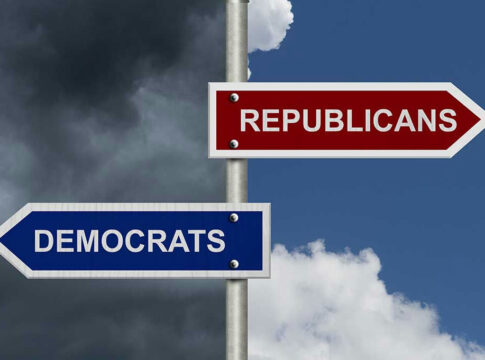Sanctuary city mayors defying federal law now face the threat of criminal prosecution as the Trump administration escalates its crackdown, igniting fierce debate over constitutional authority and public safety.
Sanctuary City Officials Face Criminal Prosecution Threats
In April and August 2025, White House Deputy Chief of Staff Stephen Miller publicly condemned Democratic sanctuary city and state officials, calling their refusal to honor ICE detainer requests “systemic criminal violations.” Miller accused these leaders—including Boston Mayor Michelle Wu, California Governor Gavin Newsom, and Los Angeles Mayor Karen Bass—of obstructing federal law and warned they could now face criminal charges for harboring and smuggling undocumented immigrants. The Trump administration’s shift from revoking federal funds to pursuing legal prosecution marks a dramatic escalation in federal immigration enforcement strategies and signals an intent to hold local officials personally accountable for policy decisions.
Background: Sanctuary Movement and Federal Response
Sanctuary cities, which limit cooperation with federal immigration authorities, originated in the 1980s and have expanded in response to stricter federal enforcement. During Trump’s first term, the administration attempted to withhold federal funding from jurisdictions refusing to comply with ICE requests and increased immigration enforcement nationwide. After a period of relaxed enforcement under Biden, Trump’s return to office in 2025—alongside Miller’s renewed leadership—has reignited this confrontation. Sanctuary proponents argue such policies protect vulnerable communities, while critics contend they endanger public safety and violate federal law. The debate remains deeply polarized, with ongoing legal battles over the limits of federal authority and the autonomy of local governments.
Trump Administration’s Aggressive Immigration Actions in 2025
Since January 2025, President Trump and his advisors have implemented a series of aggressive immigration policies, including the Laken Riley Act mandating detention for immigrants charged or convicted of certain crimes, a national emergency declaration at the southern border, and an ambitious goal of one million deportations annually. The administration has expanded expedited removals, increased daily arrest quotas, and revived agreements allowing local police to enforce federal immigration laws. Sanctuary jurisdictions are threatened with civil and criminal penalties and funding cuts if they refuse to cooperate. These measures have led to historic lows in illegal border crossings but have also sparked widespread fear and uncertainty among immigrant communities, with some withdrawing from public life and essential services.
Legal and Constitutional Challenges Loom Large
While Miller’s rhetoric signals a new phase in federal enforcement, the legal path to prosecuting elected officials for sanctuary policies remains highly contested. The Trump administration cites 8 U.S. Code § 1324, which criminalizes harboring and smuggling, but legal scholars emphasize constitutional barriers, particularly the Tenth Amendment, which restricts federal commandeering of state or local officials. Courts have generally upheld local discretion in law enforcement priorities, and as of August 2025, no public reports indicate arrests or indictments of sanctuary officials. Ongoing litigation and expert analysis suggest that any move to criminally prosecute local leaders will face significant legal hurdles, likely culminating in Supreme Court review and further intensifying the conflict between federal and local governance.
Political Stakes and Impact: Federalism, Public Safety, and Community Trust
This unprecedented escalation in federal enforcement deepens political polarization, with supporters arguing that restoring rule of law and public safety must override local resistance, while critics warn of dangerous overreach and attacks on community trust. The expansion of detention, loss of federal funding, and threats of criminal liability have created new risks for undocumented immigrants and local governments alike. Law enforcement agencies now navigate conflicting directives, and legal professionals anticipate a surge in constitutional challenges. As the Trump administration continues its aggressive push, both short- and long-term impacts—including possible Supreme Court litigation—will shape the future of American immigration policy and the balance of federal-state power.
Sources:
Stephen Miller named Trump’s national security adviser
Stephen Miller – Simple English Wikipedia
Stephen Miller (advisor) – Wikipedia
Extremist Files: Stephen Miller

